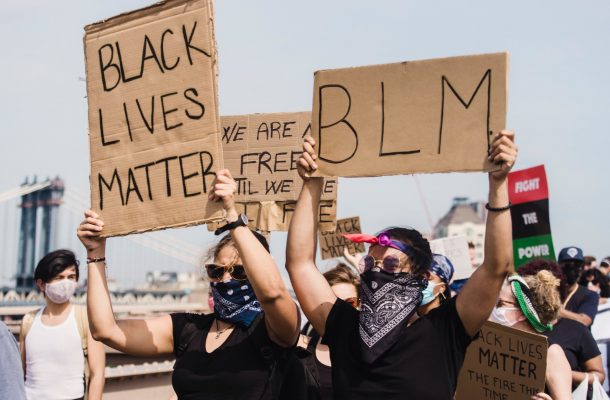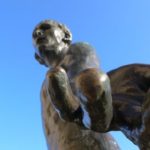The barbarians inside the gates

In the last fifty years the foundations of Western hegemony have been buffeted by both global political challenges and internal social schisms. Major errors in strategic judgment such as the Vietnam War caused great cracks in the legitimacy of the American-led coalition of nations formed after World War Two.
The next few decades saw the chess pieces of history move in even more dramatic ways; the end of the Cold War and the rise of Islamism, then a misguided decade-long struggle fighting for ‘freedom’ in Iraq, coinciding with the rise of anti-capitalist activism and an open borders Globalist agenda. These ongoing threats have sapped the lifeblood of American optimism, and fractured any remaining national unity.
Equally important in the decline of confidence in Western leadership have been the growing attacks launched from universities since the 1980s, inspired by Marxism, critical theory, post-modernism, and identity politics. The march of left-wing ideology through the humanities, and the academy in general, has been widely noted.
The current atmosphere of hostility against history has been stoked by educated ideologues, partisans of radical political movements. The lack of tolerance for the Western narrative and the outright hate for its historical icons is a direct result of this undermining of norms, reaching out through society like a many tentacled octopus.
The wide-ranging attacks on statues and monuments we have seen in the last month are the symptom of this cultural malaise. We are now witnessing a unique insurrection across advanced Western societies.
The law-abiding majority are being terrorized by a movement supremely arrogant in its righteous cause of redressing past wrongs. It is not enough for Black Lives Matter and its sympathizers to condemn racism in the present, but all traces of prejudice must be excised from the heart of Western achievement, in a self-flagellating post-mortem.
This is an open revolt against history itself by mobs of historically illiterate protestors, revisionist left-wing radicals, and their fellow social-justice travellers, one that is driven by a mixture of jealousy, resentment, and spite.
These iconoclasts would redefine the various symbols of Western achievement as simplistic icons to white supremacy and racism. In Australia we see the discoverers, explorers, and pioneers under attack, notably Captain James Cook whose 2020 Sestercentennial celebrations were treated with disdain and dismissal by Australian media and cultural elites.
In the UK figures from Winston Churchill, to Charles Dickens have felt the wrath of what is called ‘cancel culture’, a contemporary version of the kind of cultural revolution practised in China under Communist Chairman Mao Zedong.
It is certainly worthwhile examining and discussing the views of historical figures, even exposing and criticizing their flaws and weaknesses to our benefit. However, the wanton destruction of a nation’s heritage is anathema to a civilized and democratic culture.
Human history is a battleground, and human nature exists in the shadows between good and evil. This means no single culture can ever possibly escape moral censure of some kind. Slavery itself is the albatross around the neck of civilization, from ancient Babylon onwards.
Throughout the Americas slavery was widespread before Columbus, and in Africa and the Middle East slavery in various forms has existed up until the present day. Western nations such as the U.S.A. have been unique in standing up to fight slavery and racism since the American Civil War, something overlooked in the rush to condemn.
Defacing and toppling the statues of American presidents is a hate crime aimed at the collective identity of a society, and a form of vandalism on par with the destruction of the Bamiyan Buddhas by the Taliban in 2001.
The same logic of erasing the past, if followed to its logical end, would lead to the dismantling of incredible achievements of human endeavour such as the Great Pyramid of Giza and the Taj Mahal, both built through the forced labour of thousands of slave workers. The sublime and enlightening works of Plato, Aristotle, Marcus Aurelius and others would also have to go, since they also condoned slavery as natural institutions.
In fact, much of human knowledge and achievement would be lost if the correction of culture was allowed free reign. Already we see the move in schools to replace books from the Western canon with works by minority voices, in the name of diversity.
Of course cultures must evolve and change, but in normal situations this is an organic process in which the present builds on the past in an ongoing conversation. But the deliberate choice to turn our back on the monumental figures of the past is to refuse to learn from those who defined where we came from, and who we might become.
The strength of Western culture through history has been its openness to influence and its spirit of adventure, if sometimes of conquest. This openness to ideas has resulted in the ideals of democracy and freedom that have been exported around the world. It is also a reason for the turmoil engulfing the present moment.
The barbarians inside the gates do not understand or value the heritage they would cancel, and which they themselves will inherit one day.
Jason Beale is a Melbourne writer. His essays, reviews and poetry have appeared in print and online. A chapbook of his poems titled Be Quiet About Love was recently published in the Picaro Poets series by Ginninderra Press.













